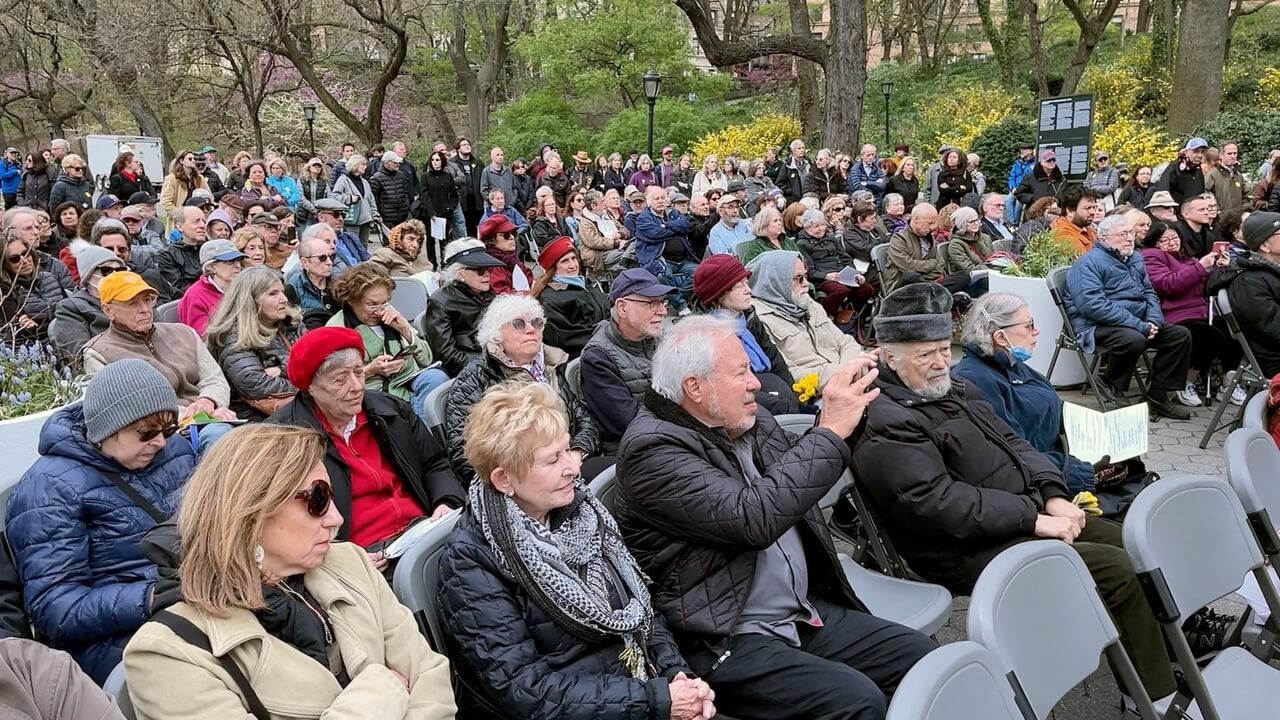A painful split in the Yiddishist community since Oct. 7
The opposing perspectives of pro-Israel and pro-Palestinian Yiddish fans has triggered anxiety and vehement arguments

The opposing perspectives of pro-Israel and pro-Palestinian Yiddish fans has triggered anxiety and vehement arguments

This article originally appeared in the Yiddish Forverts. Since its founding in 1996, more than 10,000 people have attended Klezkanada, the annual festival of Jewish culture and Klezmer music held in Quebec’s Laurentian mountains. Despite Klezkanada’s ambitious scale (besides music it features theatrical workshops, Yiddish classes, creative writing seminars and concerts), the organization never had…

This article originally appeared in the Yiddish Forverts. In the traditional Jewish betrothal ceremony (called tnoyim in Yiddish), the bride and groom barely play a role. The parents of both sides draw up a document detailing all the prenuptial conditions; the parents then sign that document, alongside two “kosher” witnesses. But at the recent engagement…

Two weeks ago, my family and I spent a week in the Laurentian mountains, an hour north of Montreal. We were there for a week-long Jewish music and culture festival called KlezKanada, which has become one of our favorite annual excursions. (Brisk dips in a gorgeous lake, the convergence of the world’s most renowned klezmer…

For twenty years, KlezKanada has offered a summertime retreat for musicians and music lovers in an idyllic setting in the Laurentian mountains at Camp B’nai Brith in Lantier, Quebec, an hour outside Montreal. In some ways, it has been the summer camp version of the now-defunct wintertime KlezKamp that took place for 30-some years in…

This is our second feature of poetry written at KlezKanada Poetry Retreat. See the original feature here. Ezra Pound once stated that poets are the antennas of the race. At this year’s KlezKanada Poetry Retreat, which I was privileged to co-coordinate with Jake Marmer, poets composed alongside the timbres and textures of Yiddish music. Traveling…

If, as Shelley had it, poets are the legislators of the world, then at this past year’s KlezKanada Poetry Retreat their law was music. Hosted at the large, week-long klezmer festival, the poetry was surrounded by accordionists, tsimbelists, people tapping out rhythms or tuning their violins. I was privileged to be co-teaching the retreat along…

This is the first part of a four-part article originally appearing in the Spring 2011 issue of Lilith Magazine. Picture the stairwell in the poor apartment: the neighbor descends the steps and the woman in the doorway repeats, “Good night, good night,” and then haltingly speaks the words: “He hit me yesterday. I’m black and…




100% of profits support our journalism